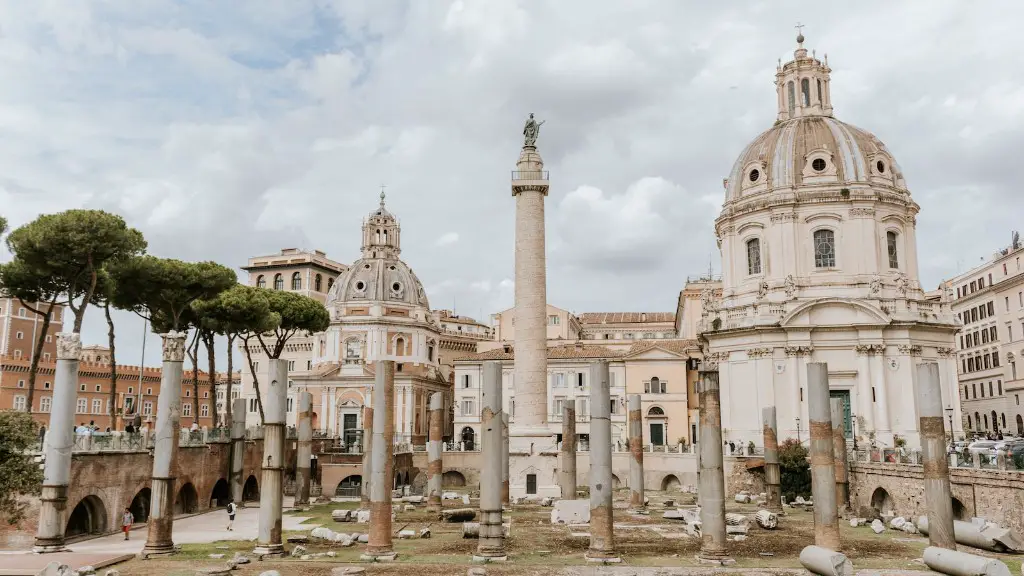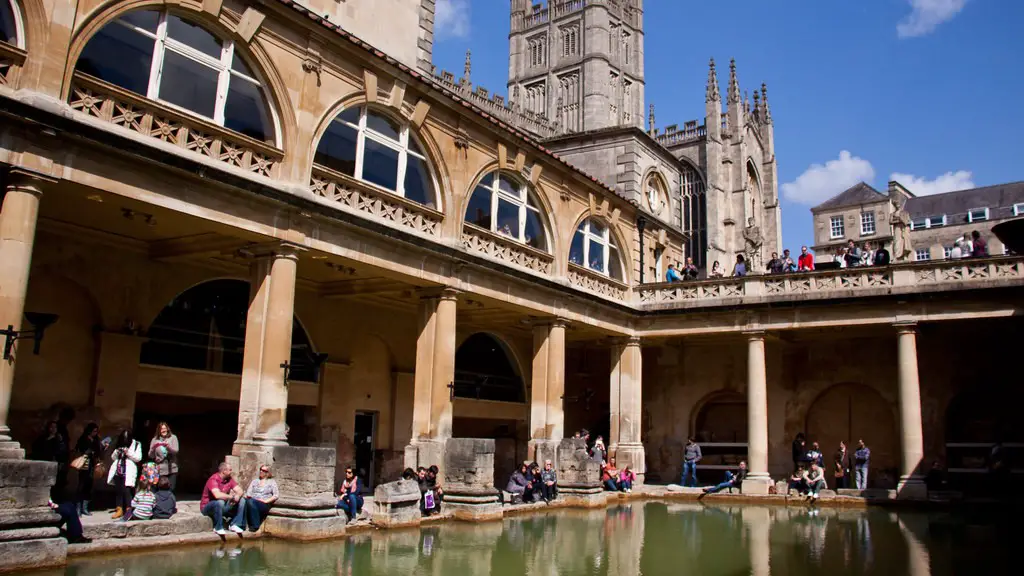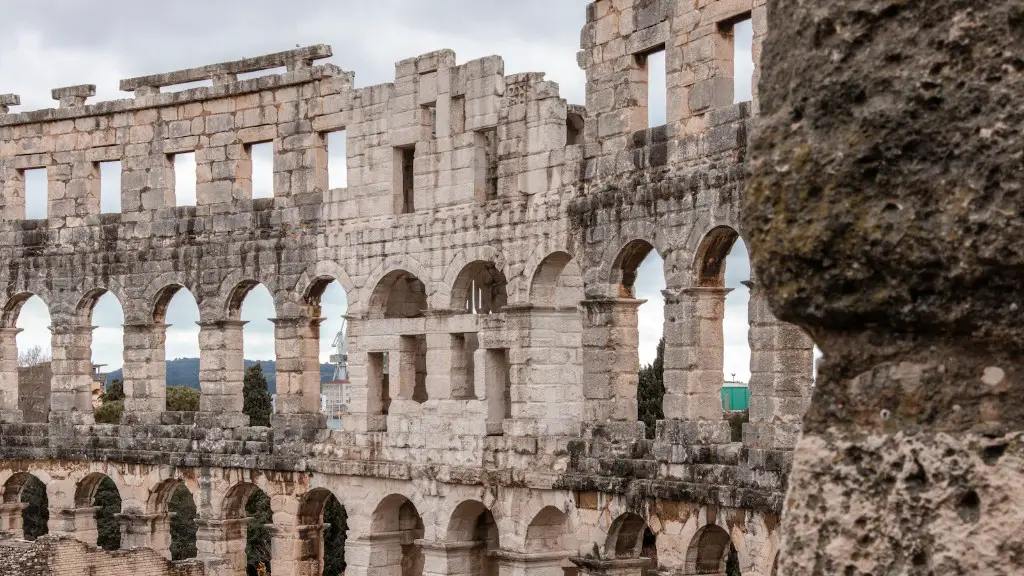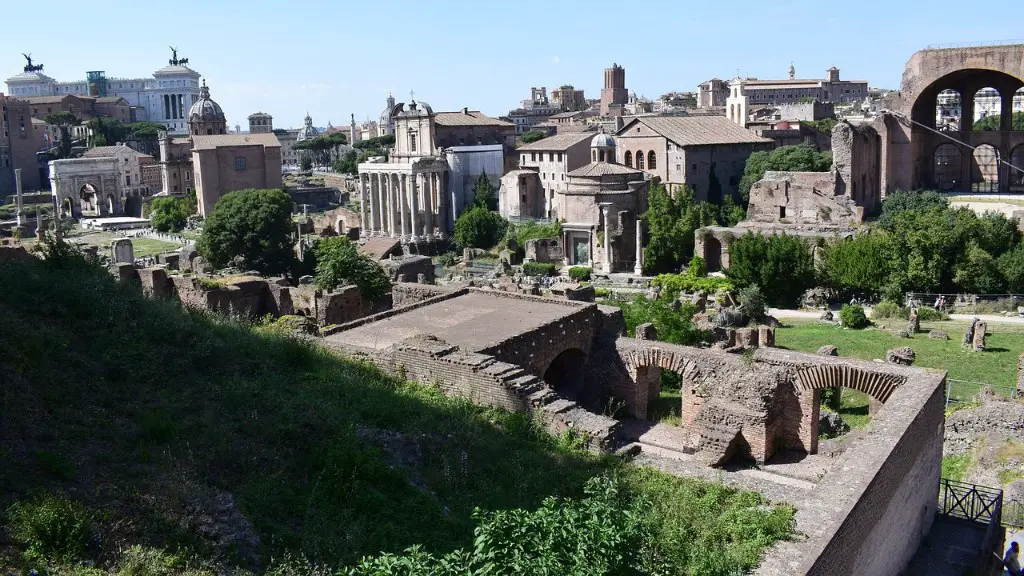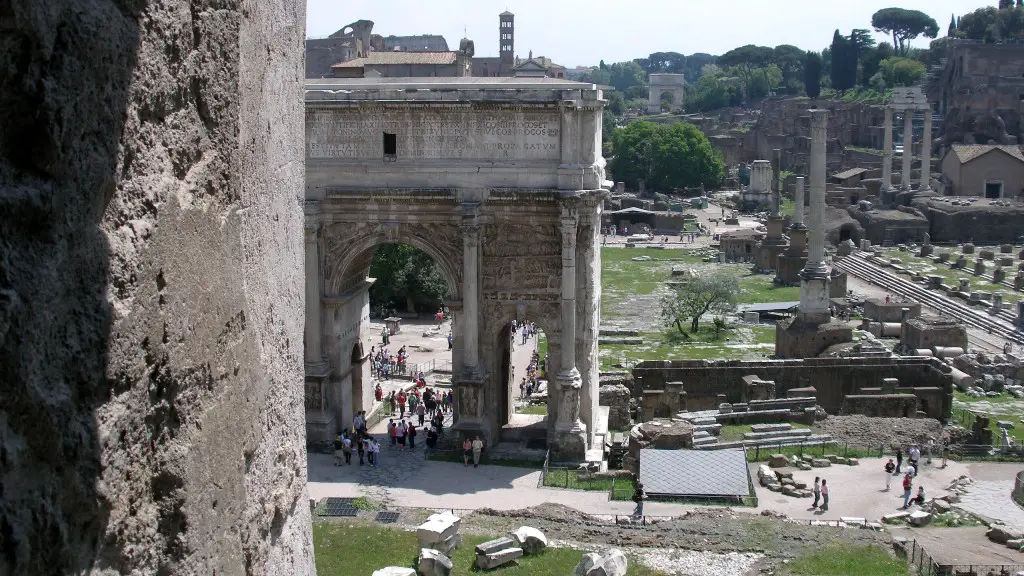Who Were The Wealthy Citizens Of Ancient Rome?
From the height of its power in the 2nd century CE, Ancient Rome was famous for its wealth and sophistication. The citizens of the city took immense pride in their status as one of the richest and most luxurious cities of its time. As the cultural and political centre of the Mediterranean, Ancient Rome attracted people from all over the world and was a melting pot of cultures, religions and personalities. Wealthy citizens of Ancient Rome benefited from its culture and history, enjoying all of the advantages of being part of the most powerful empire.
According to researchers, the wealthiest citizens of Ancient Rome were drawn mainly from the Patrician class. This was a group of people who had traditionally held the highest positions in society. As a result, the Patrician families could amass great wealth and power. Some members of this elite class owned vast amounts of land which enabled them to increase their fortunes.
The Patricians of Ancient Rome were renowned for their extravagant lifestyles and expensive taste. They lived in large villas, decorated with expensive furniture and ornaments. Many also patronised the arts and literature, and had a love for music and theatre. Wealthy members of this class often wore expensive clothing, jewelry and even a signet ring. Their homes were filled with lavish decorations and sculptures.
In addition to the Patricians, a number of Roman citizens from different social classes were wealthy and influential. Members of the equestrian class enjoyed high social positions, but were not as well-off as the Patricians. They still, however, had large estates, villas and gardens. These, as well as their strong political connections, made them influential in Roman society. The business class were also often wealthy and influential, and some even owned their own factories or workshops.
Roman citizens were also known to accumulate their wealth through trade, manufacturing and investing. Businesses such as banking and maritime trading were popular, while some citizens made the most of the advertising sector, renting out billboards and public spaces to promote products. Others took advantage of the taxation system, with many becoming wealthy through inheritance and taxation exemptions.
The wealthy citizens of Ancient Rome also accrued their wealth through civil service. Many members of the elite classes held government positions, such as senators or consuls, which enabled them to amass vast amounts of money and power. These positions also allowed these individuals to influence government policies, giving them an even larger share of the empire’s wealth.
The wealthy citizens of Ancient Rome had immense power over society. Many of these powerful and influential people used their wealth to support libraries, promote the arts and even construct grand monuments. As a result, their legacy can still be seen in Rome today.
How Did Wealthy Citizens In Ancient Rome Spend Their Money?
The wealth of Ancient Rome’s elite classes was often used to display their power and influence. The wealthier citizens were often seen in attendance at various events and spectacles, such as theatre productions and sporting competitions. Wealthy individuals also often paid for lavish banquets and feasts, which were a sign of prestige and power.
The wealthy citizens of Ancient Rome also used their funds to build grand structures. They often funded large public works, such as aqueducts and bridges, to improve the infrastructure of the city. They also paid for the construction of impressive monuments and temples, which reflected their wealth and prestige. Moreover, wealthy citizens often used their fortunes to collect art and jewellery, showcasing their wealth and gain the admiration of their peers.
Wealthy Roman citizens were also known to fund extravagant lifestyles. Members of the Patrician class could employ a large number of servants, while also owning lavish homes and expensive clothing. They often threw lavish parties and events to show off their wealth and influence. They were also known for their love for luxury items, such as perfumes, jewellery and fine art.
The wealthy citizens of Ancient Rome were often known for their political influence. They used their finances to support the campaigns of candidates and could even bribe senators to gain access to exclusive privileges. They could also buy or influence the votes of senators to secure their position. This power allowed them to gain even more wealth and influence, as well as influence the empire’s policies.
The wealthy citizens of Ancient Rome often used their wealth to gain a high social standing. They could afford to build impressive homes and could gain the admiration of their peers through the hosting of grand banquets. By spending their fortune in this manner, they could climb the social ladder and gain increased respect and power.
What Was The Legacy Of The Wealthy Citizens Of Ancient Rome?
The wealth of the citizens of Ancient Rome left an indelible mark on the city. The grand monuments, impressive infrastructure and lavish lifestyles of the citizens molded the character of the city, and helped create the image of Ancient Rome as an opulent and powerful empire.
The legacy of the wealthiest citizens of Ancient Rome can still be seen throughout the city. The impressive sculptures and grand monuments, such as the Colosseum or the Pantheon, still stand today and serve as reminders of the power of the wealthy citizens of Ancient Rome. Furthermore, the influence of this class is still evident in the politics of modern Rome, as the wealthy citizens played a major role in the politics of the city.
The wealth of the citizens of Ancient Rome also played an important role in its culture. The wealthy citizens patronised literature, art and music, enriching the culture of the city. In addition, their luxurious lifestyles served as an inspiration to their peers, prompting them to strive for similar achievements.
Furthermore, the wealthy citizens of Ancient Rome played an important role in the economy. By investing in new businesses and projects, the wealthy citizens helped create much-needed jobs and wealth. They also used their fortunes to fund infrastructure projects, which helped make the city a better place to live.
Finally, the wealthy citizens of Ancient Rome also helped make the city a more peaceful and efficient place to live. By providing funds for public works and infrastructure, they enabled the city to function better and resolve conflicts more quickly. Through their efforts, the citizens of Ancient Rome were able to ensure peace and security for their city.
What Were The Drawbacks Of Wealth In Ancient Rome?
Despite the positive aspects of wealth in Ancient Rome, there were also drawbacks associated with it. The wealthy citizens often used their money and influence to gain exclusive privileges or political positions. This could lead to corruption and a lack of transparency in government. In addition, the wealthy citizens often abused their financial power and allowed it to go unchecked.
As a result, the citizens of Ancient Rome could become divided. The wealthiest members of society were able to enjoy an extravagant lifestyle, while the poorer members struggled to make ends meet. This could lead to unrest and discontent among the general population, who felt they were not properly represented. This could prevent the city from functioning as efficiently as it could, in turn limiting its potential.
Furthermore, the wealthy citizens of Ancient Rome could also be subject to criticism. As they were seen as the symbol of power and wealth, they often became the target of criticism and resentment. This could lead to a negative image of the wealthy class, and could even incite negative feelings towards the city.
Finally, the wealthy citizens often took advantage of the taxation system, which could lead to an unfair distribution of wealth. The wealthiest citizens could exploit loopholes or payment exemptions, which could often leave the citizens feeling cheated. This could lead to further resentment and unrest.
What Was The Impact Of Wealth In Ancient Rome?
The wealth of the citizens of Ancient Rome had a profound impact on the city. On one hand, it enabled the city to become more powerful and wealthy. Wealthy citizens could invest in new projects and businesses, helping create much-needed jobs and revenue. Moreover, it enabled the city to become more effective in tackling issues, and provided the funds necessary for grand monuments and public works.
On the other hand, the wealthy citizens of Ancient Rome could become a source of division and discontent. The differences in wealth and power could lead to resentment and unrest between citizens, as those who had less felt cheated and neglected. This could ultimately lead to a lack of trust, and weaken the foundations of the city.
Overall, the wealth of the citizens of Ancient Rome could be both a blessing and a curse. While it provided opportunities and enabled the city to amass great wealth, it could also create division and cause unrest. As a result, the effects of wealth in Ancient Rome are stills seen to this day.
How Wealthy Citizens Of Ancient Rome Accrued Their Fortune?
The wealthy citizens of Ancient Rome had a variety of ways in which they could gain wealth. As mentioned previously, members of the Patrician class held the highest positions in society, providing them with immense wealth and influence. Other members of the Patrician class also inherited large amounts of land, which allowed them to increase their fortune.
Members of the equestrian class also enjoyed high social positions, but were not as well-off as the Patricians. They still had large estates, villas and gardens which enabled them to accumulate wealth. In addition, many wealthy citizens made use of the taxation system, which enabled them to become even wealthier through inheritance or payment exemptions.
Some citizens of Ancient Rome accured their wealth through trade, manufacturing or investing. This enabled them to gain wealth through their own businesses. Others took advantage of the advertising sector, renting out billboards and public spaces to promote their products. Roman citizens also had the option to fund extravagant lifestyle and patronise the arts, as well.
Finally, members of the elite classes often gained wealth through their government positions. Working as senators or consuls enabled these individuals to gain vast amounts of money, as well as the power to influence government policies.
What Were the Roles Of Wealth In Ancient Roman Society?
Wealth played an important role in ancient Roman society, as it enabled individuals to gain influence, influence and power. Wealthy citizens often had a large say in the politics of the city, as well as a major role in the culture and economy. Wealthy individuals were able to invest in new businesses, which helped create much-needed jobs.
In addition, the wealthy citizens of Ancient Rome also had a powerful influence over the social ladder. By displaying their wealth and influence, they could become respected members of society. This enabled them to influence the politics of the city and even accrue more wealth.
The wealthy citizens of Ancient Rome were also responsible for the development of the city. By funding public works, they could help improve the infrastructure of the city. They were also known to fund the building of grand monuments and temples, as well as patronising the arts.
Wealth was also important in Ancient Rome in terms of inheritance. The wealthy citizens could pass down their fortunes, which enabled their families to gain even more wealth and power. This could also lead to large-scale disputes over inheritance, which could create unrest in the city.
Overall, wealthy citizens of Ancient Rome had an important role in the city. They enabled the city to become more powerful and wealthy, while also helping create new businesses and public works. Nonetheless, their wealth could also have a detrimental effect on the city, creating a rift between citizens and leading to discontentment.

